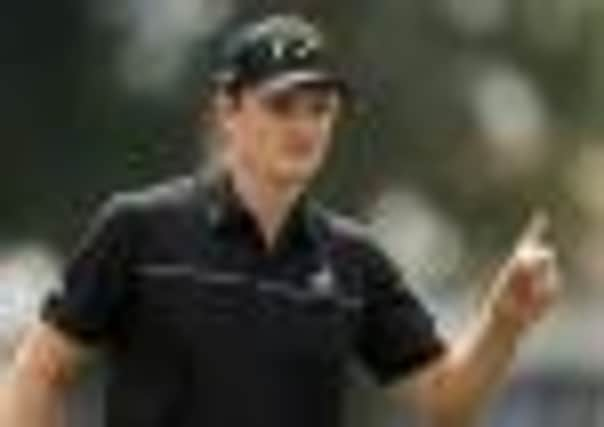Martin Dempster: Justin Rose’s rocky rise a lesson


A 17-year-old at the time, he whipped up a media frenzy after chipping in at the last hole to finish fourth in the 1998 Open Championship at Royal Birkdale.
A new golfing star had been born overnight, yet some of the predictions made about Rose, on the strength of one good performance, soon became questionable as the young Englishman missed 21 consecutive cuts on the European Tour at the start of his professional career.
Advertisement
Hide AdAdvertisement
Hide AdAll credit to Rose for overcoming that nigthmare induction, first to establish a foothold on the circuit then, in 2007, be crowned as the European No 1. Now he’s celebrating the biggest win of his career – the WGC-Cadillac Championship.
To see Rose back in the limelight again was a timely reminder that, in most cases, it takes blood, sweat and tears for young professionals to work their way to the top of the ladder.
Very few, in fact, enjoy almost instant success, as the likes of McIlroy, Keegan Bradley and Matteo Manassero have in recent years.
In Scotland, the expectancy levels go through the roof when our top amateurs show signs of promise, the likes of Richie Ramsay, Lloyd Saltman, Callum Macaulay, Michael Stewart, James Byrne and David Law all being perfect cases in point within the last decade. Yet, of that sextet, only Ramsay holds a European Tour card at the moment.
“It’s reality,” said Andrew Coltart, the retired former European Tour player who is now, officially, working with the Scottish Golf Union in offering mentoring to the latest batch of up-and-coming amateurs in the home of golf, a move advocated in this column earlier this year.
“A lot of the kids need a healthy dose of that without trying to knock them off their pedestal. They go out and win events in Scotland. They assume that because they are doing that they will be among the top 10 players in Europe. Then they get out there and they realise that there are 4,000 other players of the same ability. Holy s***!”
Coltart, who as an amateur won both the Scottish Boys and Scottish Stroke-Play as well as playing in the Walker Cup, struggled himself at the start of his professional career.
“I won £9,363 and 17 pence in about 18 events and £4,666 of that was in the last event I played. It was a wake-up call,” he admitted.
Advertisement
Hide AdAdvertisement
Hide AdWorking in tandem with Steve Paulding, the Scottish Golf performance manager, and Stephen Docherty, the SGU’s new non-executive performance director, his aim is to create a “connection” between the amateur and professional games in order to give players the best possible chance to hit the ground running.
A few months back, Byrne, Law and Stewart all left the amateur ranks with CVs that suggested they had bright futures ahead in the paid ranks. And it’s way too early to even suggest otherwise. Yet, right now, they’re still trying to find their feet as Tour professionals. “Golf is strange with that amateur to pro divide,” noted Paulding. “Yes, it’s a big step up but the evidence is that those guys [Byrne, Law and Stewart] should do it. Who knows why it doesn’t happen [straight away].”
The encouraging thing for Scottish golf is that the building blocks are starting to be cemented in a bid to improve our record when it comes to that transition. Paul Lawrie and Stephen Gallacher are playing their part in providing opportunities for youngsters to take up the sport, as well as cutting competitive teeth, through their respective foundations. Now Coltart is ready to use his experience of being a Tour winnner and a Ryder Cup player to pass on good advice a bit higher up the ladder.
The appointment is a positive start in his role by Docherty, who played for Scotland himself at boy and youth levels – he was a member of the Great Britain & Ireland boys’ team in 1987 as well – and also brings valuable experience to the task from his day job, as head of global equities at Aberdeen Asset Management.
“Money is not always the answer. If you’re putting it in the wrong places the end result will be wrong,” he said wearing his golfing hat.
“We have to be wiser with what we have and use the experiences of people like Andy and Steve. We are a great nation for being negative. Amid all this negativity you miss the positives. Everyone wants results yesterday. But as long as you’re moving forward that’s the key. And we are trying to make the game better.”
At long last, there are certainly signs that everyone with Scottish golf at heart is starting to work as a team. “I’m encouraged,” admitted Coltart, “that we are singing from the same hymn sheet here.”